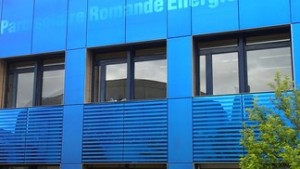Dec 8 2015
2050 is not far away; but how will it be? Many avant-guard technologies developed at EPFL today are likely to be part of everyday life. In a dialogue with EPFL researchers, one of whom Prof. Jean-Louis Scartezzini of the EPFL Solar Energy and Buildings Physics Lab, Thomas Dayer of "L'Illustré" invites us for a walk through tomorrow's world.
 © 2015 EPFL
© 2015 EPFL
Cars without drivers, emergency aid robots, under-skin sensors and intelligent cities will likely be the norm in 2050 - but how will the built environment present itself and which materials will be used for constructions? For Prof. Scartezzini, integrated solar technologies will be omnipresent and invisible to our eyes thanks to nano-composite materials - first examples have been built already. Quantum dot based technologies will furthermore enable opaque façades that generate heat, electricity and light and other new technologies will allow new buildings to become autonomous or to have a positive annual energy balance. As a building material, concrete might in part be replaced by renewable construction materials, such as wood or high density straw blocks.
The Solar Energy and Building Physics Lab actively prepares this future. Its work in the field of nanotechnology for solar applications allows already today the construction of elegant electricty producing facades, such as the South façade of the EPFL ELL building. As a Master thesis on the strawbale building of the Lausanne city administration has shown (A. Chaussinand, Diagnostic et expertise énergétique d'un bâtiment administratif Minergie Eco construit en paille à Lausanne), écological alternatives to traditional construction materials also exist and will likely be used much more widely in construction in the future. (Article from "L'Illustré" in French). Many more improvements are in the making.